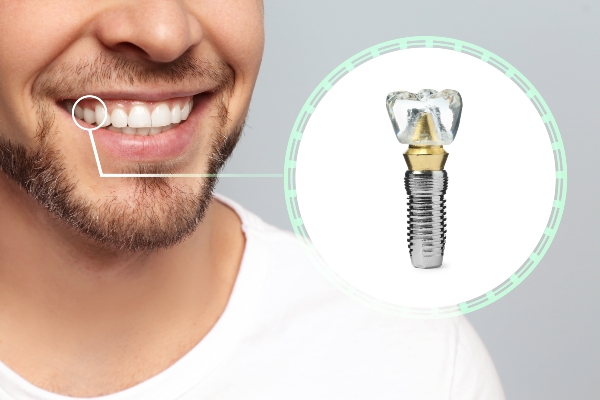 You may not be aware that you need dental implants. But your dentist can tell you that you do, especially if you have regular checkups. Knowing if you need these restorations can motivate you to see your dentist about getting these dental replacements. Here are the three signs that you may need dental implants.
You may not be aware that you need dental implants. But your dentist can tell you that you do, especially if you have regular checkups. Knowing if you need these restorations can motivate you to see your dentist about getting these dental replacements. Here are the three signs that you may need dental implants.
1. Significant changes in one’s appearance
Tooth loss causes jawbone loss. Because of this, facial structures lose proper support. This results in a sunken or caved-in appearance. People with this problem look years older than their true age. This also happens to people who wear temporary dentures. Since these dental replacements only stay on the gums, the jawbone shrinks.
Dental implants have titanium rods that act as dental roots. These structures stimulate the jawbone and signal the body to send nutrients for tissue repair. The jawbone will then begin to thicken and strengthen again. It will start to support the facial structures again. The individual will have a natural facelift. The patient’s smile will also be more natural than the smile one gets from removable restorations.
2. The area shows signs of infection
An individual may need dental implants if there is at least one tooth showing severe signs of infection. The signs may come from poor dental hygiene, injury, or gum disease. Without any treatment, the infection may spread to different parts of the body, including the heart and lungs. Here are the signs to watch out for:
- Bad breath.
- Oral pain when lying down.
- Throbbing pain in the jawbone, neck, or ear.
- Throbbing pain in the tooth.
- Bitter taste in the mouth.
- Fever.
- Swollen neck lymph nodes.
- Pressure sensitivity in the mouth.
- Temperature sensitivity.
- Cheek swelling.
The patient’s condition may become life-threatening if the infection spreads to other parts of the body. Dizziness, headaches, or fatigue may occur. There could also be swelling in the area, with chills and fever. These signs and symptoms may prevent the individual to breathe or swallow. There could be rapid pulse rate and dehydration as well. The dentist could recommend dental implants if the area is causing intense pain.
These restorations may also prevent more tooth loss in the future. Dental implants are like natural teeth. Titanium rods serve as dental roots, while the artificial crown replaces the lost natural one. The rods stimulate the jawbone and signal the body to send nutrients for tissue repair. This prevents jawbone loss and possible tooth instability.
These restorations also occupy the dental spaces left by tooth loss. Dental implants prevent neighboring teeth from shifting into these spaces. The stable restorations prevent tooth loosening. This can prevent more tooth loss or even more serious health issues.
3. Damaged teeth
Statistics show that almost 20% of people experience dental trauma. Cracked or chipped teeth must receive treatment right away. If the case is severe, the dentist may recommend dental implants. These restorations can replace the teeth with severe damage. The patient could then enjoy a painless, natural smile.
The mentioned signs can help determine if you should get dental implants
You may reach a point where your dental trauma cannot receive dental repairs anymore. The pain and infection may be too severe for temporary restorations. Recognizing the signs you need permanent dental replacements can end your discomfort. Working with your dentist can help you go through the experience of getting dental implants.
Request an appointment or call Laurel Smile Dentistry at 510-530-3317 for an appointment in our Oakland office.
Related Posts
Studies show that dental implants remain the gold standard in dental restorations. These dental replacements are the most stable ones that you can get. It may be invasive, but once it heals well, you will have good dental function again. Here are the details about the process of getting dental implants.The dentist will examine the…
Dental implants are a leading choice for many patients when it comes to tooth replacement. Patients like the idea of a tooth replacement option resembling natural teeth. Dental implants look natural and perform like a permanent natural tooth. Therefore, there is no need to take the tooth replacement out daily for cleaning or worry about…
As a patient considering dental implants, there are some important things that you need to know. Dental implants are a popular and effective way to replace missing teeth, but they require careful consideration and planning to ensure their success. This article will go over the basics of dental implants and what you can expect from…
